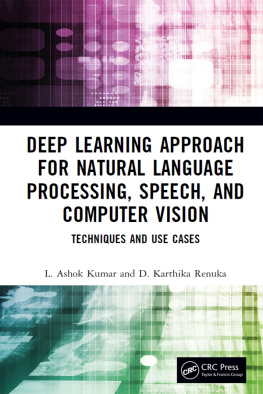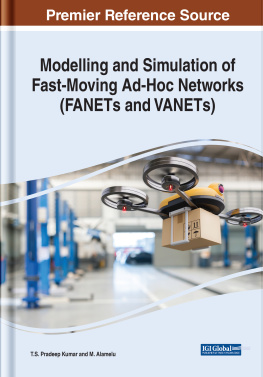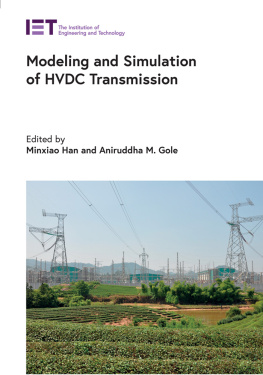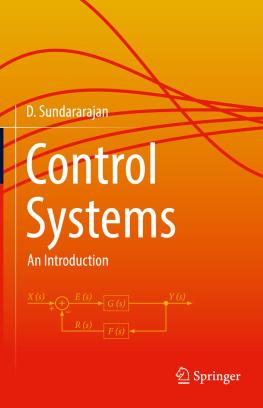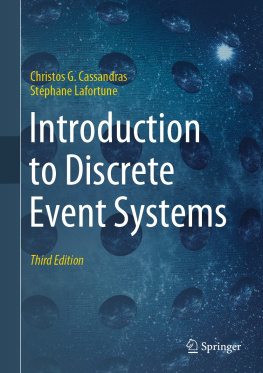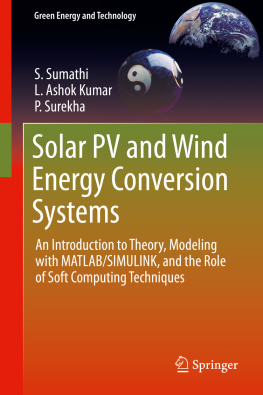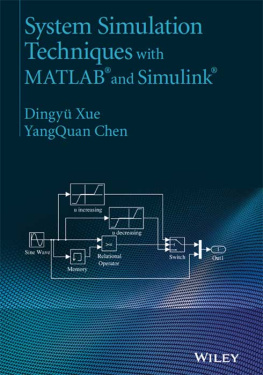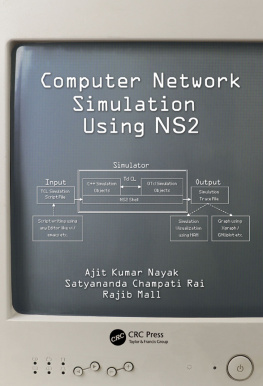Ashok L. Kumar - Software Tools for the Simulation of Electrical Systems
Here you can read online Ashok L. Kumar - Software Tools for the Simulation of Electrical Systems full text of the book (entire story) in english for free. Download pdf and epub, get meaning, cover and reviews about this ebook. year: 2020, publisher: Elsevier Ltd., genre: Computer. Description of the work, (preface) as well as reviews are available. Best literature library LitArk.com created for fans of good reading and offers a wide selection of genres:
Romance novel
Science fiction
Adventure
Detective
Science
History
Home and family
Prose
Art
Politics
Computer
Non-fiction
Religion
Business
Children
Humor
Choose a favorite category and find really read worthwhile books. Enjoy immersion in the world of imagination, feel the emotions of the characters or learn something new for yourself, make an fascinating discovery.

- Book:Software Tools for the Simulation of Electrical Systems
- Author:
- Publisher:Elsevier Ltd.
- Genre:
- Year:2020
- Rating:4 / 5
- Favourites:Add to favourites
- Your mark:
- 80
- 1
- 2
- 3
- 4
- 5
Software Tools for the Simulation of Electrical Systems: summary, description and annotation
We offer to read an annotation, description, summary or preface (depends on what the author of the book "Software Tools for the Simulation of Electrical Systems" wrote himself). If you haven't found the necessary information about the book — write in the comments, we will try to find it.
Software Tools for the Simulation of Electrical Systems — read online for free the complete book (whole text) full work
Below is the text of the book, divided by pages. System saving the place of the last page read, allows you to conveniently read the book "Software Tools for the Simulation of Electrical Systems" online for free, without having to search again every time where you left off. Put a bookmark, and you can go to the page where you finished reading at any time.
Font size:
Interval:
Bookmark:
Dr. Ashok Kumar L. was a Postdoctoral Research Fellow at San Diego State University, California. He is a recipient of the BHAVAN fellowship from the Indo-US Science and Technology Forum and SYST Fellowship from DST, Govt. of India. His current research focuses on integration of Renewable Energy Systems in the Smart Grid and Wearable Electronics. He has 3 years of industrial experience and 19 years of academic and research experience. He has published 187 technical papers in International and National journals and presented 197 papers in National and International Conferences. He has completed 27 Government of India funded projects, and currently seven projects are in progress. His PhD work on wearable electronics earned him a National Award from ISTE, and he has received 24 awards at the national level. Ashok Kumar has seven patents to his credit. He has guided 98 graduate and postgraduate projects. He is a member of, and in prestigious positions in, various national forums. He has visited many countries for instituteindustry collaboration and as a keynote speaker. He has been an invited speaker in 178 programs. Also he has organized 79 events, including conferences, workshops, and seminars. He completed his graduate program in Electrical and Electronics Engineering from the University of Madras and his postgraduate from PSG College of Technology, India, and Masters in Business Administration from IGNOU, New Delhi. After completion of his graduate degree, he joined Serval Paper Boards Ltd., Coimbatore (now ITC Unit, Kovai) as a project engineer. Presently, he is working as a Professor and Associate HoD in the Department of EEE, PSG College of Technology and also doing research work in wearable electronics, smart grid, solar PV, and wind energy systems. He is also a Certified Charted Engineer and BSI Certified ISO 500001 2008 Lead Auditor. He has authored the following books in his areas of interest: (1) Computational Intelligence Paradigms for Optimization Problems Using MATLAB/SIMULINK, CRC Press; (2) Solar PV and Wind Energy Conversion SystemsAn Introduction to Theory, Modeling with MATLAB/SIMULINK, and the Role of Soft Computing Techniques, Green Energy and Technology, Springer, United States; (3) Electronics in Textiles and Clothing: Design, Products and Applications, CRC Press; (4) Power Electronics with MATLAB, Cambridge University Press, London; (5) Automation in Textile Machinery: Instrumentation and Control System Design Principles, CRC Press, Taylor & Francis Group, United States; (6) monograph on Smart Textiles; (7) monograph on Information Technology for Textiles; (8) Deep Learning Using Python, Wiley India Publications; (9) monograph on Instrumentation & Textile Control Engineering; and (10) Computational Paradigm Techniques for Enhancing Electric Power Quality, CRC Press, Taylor & Francis Group, United States.
Dr. Indragandhi V. has a Power Electronics background from her studies as follows: She received an M.E in Power Electronics and Drives from Anna University and was awarded a Gold Medal for the achievement of University first rank. Subsequently, she was awarded a doctorate of philosophy in the field of Power Converters for Renewable Applications at Anna University, Chennai in the year 2015. At present, she is serving as an Associate Professor in the School of Electrical Engineering, Energy, and Power Electronics Department, Vellore Institute of Technology, Vellore, Tamil Nadu. She has been engaged in teaching cum research work for the past 12 years. Moreover, she has organized 25 events, including conferences, expert talks, workshops, and value-added programs. She is an active senior member in IEEE and member of IET.
She has authored more than 60 research articles and 4 book chapters in leading peer-reviewed international journals and published articles in refereed impact factor journals such as IET, Elsevier, and Springer publications. She has visited many countries and presented her technical research work in international forums. Also she has two patents to her credit. Currently, six PhD scholars are pursuing their research under her guidance. She has guided more than 50 UG and PG projects in the area of power electronics, drives, and renewable energy sources. Currently, she serves as a reviewer for reputed journals such as IEEE Transactions on Power Delivery and IEEE Transactions on Power Electronics.
Uma Maheswari Y. is a Technology Manager at Pramura Software Private Limited, Coimbatore. She has around 16 years of industrial experience. She completed her graduate program in Electrical and Electronics Engineering at Amrita College of Engineering, Coimbatore and her postgraduate program in Embedded System and Technologies at Anna University, Coimbatore. She has authored the book titled Power Electronics with MATLAB. Her expertise is in the design of PCB and simulation software.
Dr. Ashok Kumar L. would like to take this opportunity to acknowledge those people who helped in completing this book. He is thankful to his wife, Uma Maheswari Y., for her constant support during writing. Without her, all these things would not be possible. He would like to express his special gratitude to her daughter A.K. Sangamithra who initiated the process by asking a simple question of, What is Simulation? and for her smiling face and support; it helped a lot in completing this work.
Dr. Indragandhi V. would like to take this opportunity to thank her husband Arunachalam and daughter Subiksha for their constant support and time during writing. She would like to express her special gratitude to her family members Jai Girish, Rajabrindha, and Subramaniyaswamy for showing their heartfelt love and caring words. She dedicates the book to her father Mr. Vairavasundaram and mother Ms. Chellammal who is the backbone of all her successes.
Uma Maheswari Y. wishes to thank her daughter A.K. Sangamithra in being patient and giving her all the love, time, and space to finish her work. She wishes to acknowledge her husband Askis support in the successful completion of this book. She dedicates the book to her father Mr. Yuvaraj and mother Ms. Kalavathi who laid the foundation for all her successes and special thanks to her brother Mr. Dhayaneswaran Y.
Academic Press is an imprint of Elsevier
125 London Wall, London EC2Y 5AS, United Kingdom
525 B Street, Suite 1650, San Diego, CA 92101, United States
50 Hampshire Street, 5th Floor, Cambridge, MA 02139, United States
The Boulevard, Langford Lane, Kidlington, Oxford OX5 1GB, United Kingdom
Copyright 2020 Elsevier Inc. All rights reserved.
No part of this publication may be reproduced or transmitted in any form or by any means, electronic or mechanical, including photocopying, recording, or any information storage and retrieval system, without permission in writing from the publisher. Details on how to seek permission, further information about the Publishers permissions policies and our arrangements with organizations such as the Copyright Clearance Center and the Copyright Licensing Agency, can be found at our website: www.elsevier.com/permissions.
This book and the individual contributions contained in it are protected under copyright by the Publisher (other than as may be noted herein).
Notices
Knowledge and best practice in this field are constantly changing. As new research and experience broaden our understanding, changes in research methods, professional practices, or medical treatment may become necessary.
Practitioners and researchers must always rely on their own experience and knowledge in evaluating and using any information, methods, compounds, or experiments described herein. In using such information or methods they should be mindful of their own safety and the safety of others, including parties for whom they have a professional responsibility.
Font size:
Interval:
Bookmark:
Similar books «Software Tools for the Simulation of Electrical Systems»
Look at similar books to Software Tools for the Simulation of Electrical Systems. We have selected literature similar in name and meaning in the hope of providing readers with more options to find new, interesting, not yet read works.
Discussion, reviews of the book Software Tools for the Simulation of Electrical Systems and just readers' own opinions. Leave your comments, write what you think about the work, its meaning or the main characters. Specify what exactly you liked and what you didn't like, and why you think so.

